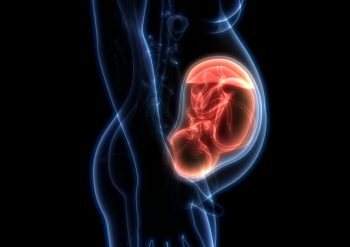As you approach the end of your pregnancy, you may wonder: are you more likely to go into labor morning or night? This is likely to be the case when you start experiencing a surge in activity inside your womb.
This may also lead you to wonder if your baby is compelled to move a lot before labor. Rest assured, the answer to the last question is yes. Most babies do move more than usual before labor. But why? Does this mean your baby is ready to be born?
In this post, we will explore the topic of fetal movement before labor in detail to help you understand what’s going on inside your body.
Increased Fetal Movement: A Healthy Sign of Development in the Third Trimester
During the third trimester, it is common for expectant mothers to feel an increase in their baby’s movements.
Your baby’s activity is an indication that they are developing healthily, building muscles, and preparing for life outside the womb.

However, it is important to know that not all babies follow a predictable pattern of movement before labor. Some babies may move less than usual, while others may become very active.
Preparing for Birth: How Your Baby’s Movements Signal Readiness
It is believed that increased fetal movement is a sign that your baby is getting ready for birth.

As your baby moves, they are practicing and strengthening their muscles for the journey through the birth canal. They may also be trying to find a comfortable and optimal position for delivery.
Slowed Growth and Increased Movement: Exploring the Connection
Another reason why your baby may move more before labor is that their growth has slowed down.
As they get bigger, they may find it harder to move around inside the uterus, which could explain the rise in movement.
External Stimuli and Baby’s Response: Understanding the Influence on Movement
It’s also worth noting that your baby’s movements may increase in response to external stimuli like sounds, touch, and light.

If you are in a noisy or distracting environment, your baby may move more than usual. Similarly, if you are experiencing strong emotions or stress, it can affect your baby’s movements.
Individual Differences: The Varied Timing and Pattern of Baby’s Movements Before Labor
Lastly, bear in mind that the timing and pattern of your baby’s movements before labor can vary significantly from that of others.
Every pregnancy is different, and your baby’s movements will depend on their unique disposition and how much space they have left in your womb.
As you approach the end of your pregnancy, monitoring your baby’s movement can provide a sense of comfort and help you feel connected to the little life growing inside you.
Increased movement before labor is common and may be a sign that your baby is getting ready for birth.
However, the timing, intensity, and pattern of your baby’s movements are unique to your pregnancy, and it’s essential to speak to your healthcare provider if you have any concerns.
Remember to trust your intuition and seek medical help if you feel that something is not right. With proper care and attention, you and your baby will soon meet face-to-face!


